Investing involves investing money in valuables, other forms of means of payment for the purpose of making a profit. Among them there are also gold. Precious metal different The gold has a conditional price stability, which allows you to consider it as an option for investing capital. But investing in gold has its own peculiarities. First you need to study the pros and cons of this method to understand how profitable it is.
Gold as an investment product: pros and cons
Au differs from the other metals in its properties:
- has a noble appearance;
- exhibits properties that make it stand out from the rest: softness, a special sound when falling on a hard surface, glitter;
- high value, which is partly due to rarity, attractiveness and characteristics;
- yellow metal has separability: its parts do not differ from the whole, which allows you to separate them, make coins, ingots;
- It has long been accepted that Au is a peculiar measure; it has obtained the status of "eternal" money, which is how it is perceived by different generations, despite the constant change of means of payment (iron to paper, and then to electronic).
The precious metal itself is not considered attractive to investors, because it does not bring profit soon, gold investments are good in the long term. Its price can also fall (after major world events, great discoveries), and the metal becomes cheaper, while goods denominated in gold coin become more expensive. But with time, the rate recovers, its slow growth continues. Au is seen as a protection against inflation. The cyclic nature of its manifestation makes it clear that prices will rise anyway. It means that it is worth investing in gold. But one should buy it with caution, considering the peculiarities of the chosen method.
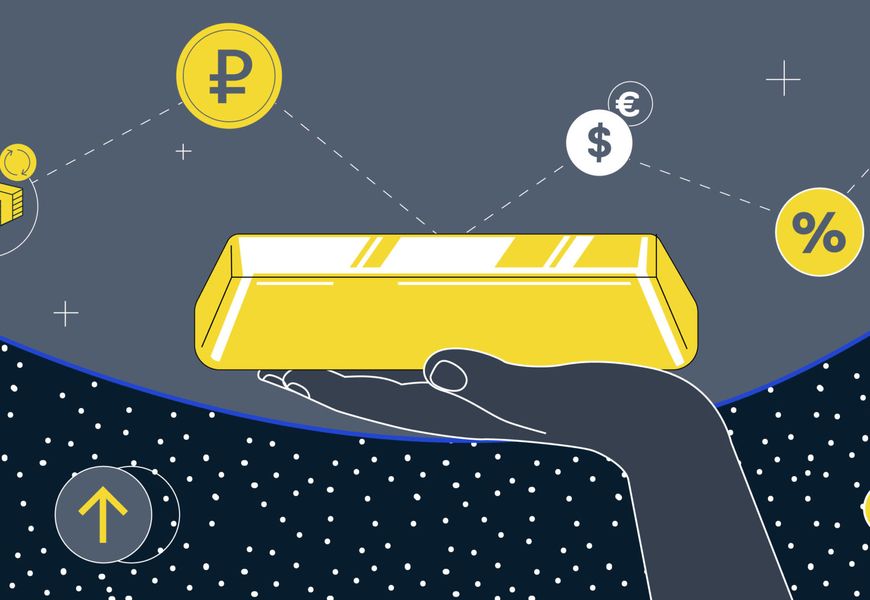
Top 10 options for investing in gold and how to buy gold as an individual
Many people believe that gold investments assume the possibility of placing capital by buying physical precious metal. However, this is only partially true. It is not necessary to buy the precious metal itself. There are other ways to invest based on investments in Au-related securities. These include gold mining stocks, jewelry, commemorative coins, etc.
Purchase of gold bullion
This is the most obvious way to invest your money in gold. Theoretically, everything looks simple: you can buy bullion if you have enough money, expect the price to rise. Further investments (as large as the purchase of bullion) are not assumed, there is no risk of losing money either. However, there are a number of peculiarities, due to which the probability of profit rapidly decreases. This is facilitated by:
- The need to pay VAT (20%), if you buy 1 kg of gold, the cost of tax will be 700 thousand rubles (at the current exchange rate);
- The spread is too high - the difference between buying and selling an ingot, it can exceed 1000 rubles per 1 gram of the precious metal, if you sell the gold in a short time, you can lose money;
- payment of income tax (13%) - is mandatory if the client has owned the precious metal for less than 3 years;
- Occurrence of hidden fees: you can learn about them only when the transaction is completed, because before that, the client is unaware of the associated costs (payment for a safe deposit box to store the valuable metal, the examination of bullion, if it is planned to sell).
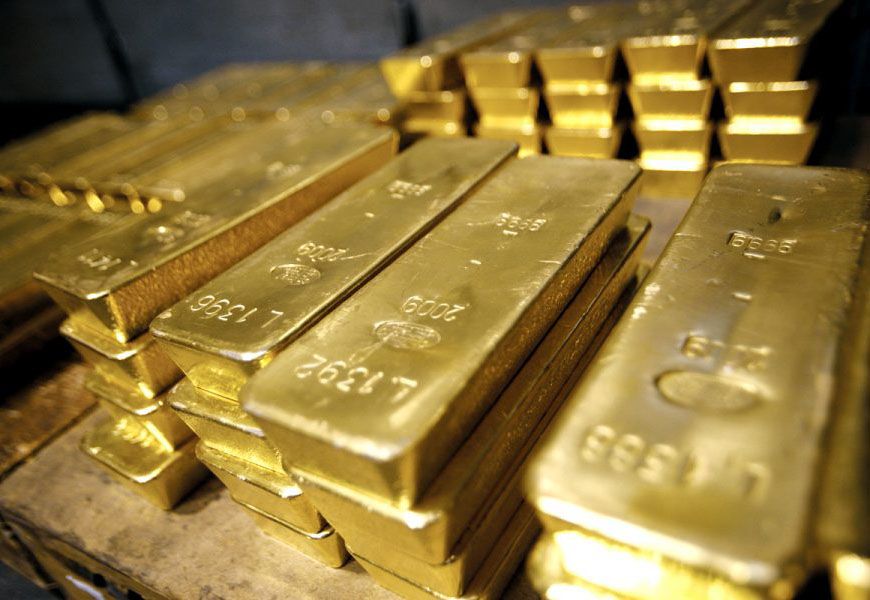
Keeping money in gold without taking care of its security is fraught with the risk of losing it.
Investment gold (bars) is a good choice only if you plan to buy a large amount and for a long time (long-term investment).
Buying jubilee coins
Investment coins are most often considered. They represent some amount of precious metal. Au is shaped like a coin, the material is vacuum-packed for preservation. However, they are made in large runs, so the cost is often average.
More expensive are jubilee (commemorative) coins. They are produced in small batches: from a few hundred to thousands of copies. Rarity makes such products more expensive. Their value mainly depends on the demand among collectors. An advantage of investing in gold (coins) is that no tax is due.
Damage to the vacuum packaging may cause the value of the coin to decrease, even if the valuable item itself has no defects.
Investing in jewelry
This is another option for buying a physical gold. However, it is the least profitable, if not completely unsuitable for making a profit. There is only one option in which the purchase of jewelry will allow you to make money: you purchase items with a minimal amount of impurities, they should be rare (not from batches for wide consumption), made to order. Another condition is that such valuables should be purchased for long-term storage. They should not be worn often.
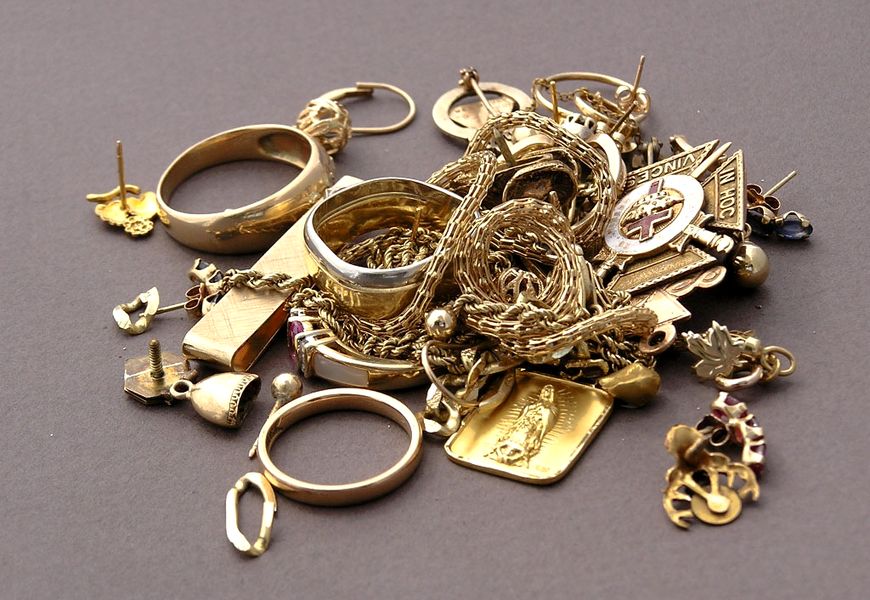
Jewelry is easily scratched in use, loses its shine, its color (the coating rubs off), and contains a considerable amount of impurities. Their price includes a mark-up by the jeweler or the store. All these factors reduce the amount of possible profit; as a result, there is no reason to invest in jewelry.
Gold Deposit
Virtual Au refers to Au which does not involve the cost of manufacturing, valuation (no physical precious metal is purchased). The new owner receives a document (certificate) on the ownership of virtual gold, also called paper gold. This way is realized in different ways: one can invest in gold through MLA, company shares, stock exchange schemes, futures, mutual funds, etc. One of the options - Gold deposit, it implies the need to replenish the special account not only with cash, but also with precious metal (at a certain percentage).
MLA bank accounts - pros and cons
The basis calculations is virtual gold - there is no physical component. When the precious metal is purchased in this way way, you can only see the state of accounts - figures meaning grams of valuable material. Purchase is made through a bank (in Russia it is Sberbank, Gazprombank, VTB, Rosselkhozbank) or a broker. The site usually has a calculator for calculating costs and profits, and specifies the profitability of gold (the current buying and selling rate). When converting virtual metal into an investment, one considers the advantages of this way of earning money:
- opens an MLA for any amount, the attachment can be to a different precious metal (silver, platinum and, of course, gold - depends on financial institutions);
- no tax is paid;
- there is an opportunity to sell Au to the bank in any amount and at any time, profit is made due to the difference in price fluctuations;
- when the account is closed, you can get physical gold in your hands.
If a bank's license is revoked, even closing the account will not allow you to return the funds or get the precious metal, you will not be able to get compensation.
The disadvantages of this method are few, but they are weighty:
- the need to pay tax when closing the account and receiving the gold bar in hand;
- Au is not subject to the deposit insurance system.
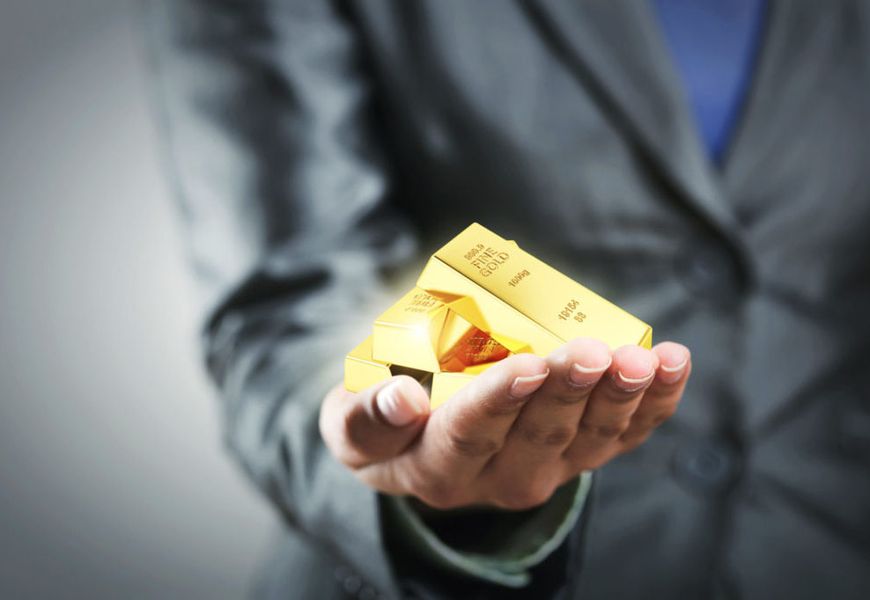
Investing in shares of gold mining companies
There is no direct investment in gold. There is an indirect connection to the precious metal: when one buys shares of companies at gold miningThe securities are actually purchased, but are not precious metal. But the profit is still directly dependent on the work of the company, the volume of mined Au. For this reason it will be correct to refer this investment tool to the ways of investing in gold.
Units of investment funds or mutual funds
There are companies that make a profit by making investments. When there is no experience in this field, you can choose one of them. You don't have to invest directly in a company, stocks or precious metals. It will be right to buy a mutual fund unit.
If you are interested in gold, you should choose those funds that focus on precious metals. And such companies do not invest only in one material. The investment portfolio usually contains several precious metals, for example: gold, silver, platinum group metals.
Examples of investment organizations: UIF Alfa Bank (Capital GOLD), Tinkoff GOLD. There are also companies that profitably invest not only in Au, but also create combined portfolios: with precious metals and securities.
Gold ETF
When deciding how to buy gold, one considers stocks of management companies (ETFs). Profits can be made when the value of the precious metal rises; when it falls, the investor earns nothing. The only disadvantage of such an investment instrument is the need to pay a commission. It is usually included in the share price.
Gold futures
This way of investing is suitable for those who already have experience in making such deals. And it is not recommended to invest large sums at once. A futures contract is a contract obliging a client to purchase a certain amount of precious metal at a certain price. It is possible to earn only if the Au value will rise in the specified period of time. But it is important to consider different forecasts before making a deal.
The risk of losing money this way of investing is too great.
Exchange trades in gold
Another option for investing in gold: on the Moscow Stock Exchange one buys precious metals online (mostly Russian companies). And their quantity is not regulated, you can buy even 1 gram. Shares of mainly foreign companies are traded at the St. Petersburg exchange. All actions are performed by a broker (if the investor has no experience, has the status of a sole trader). Then the purchased virtual metal can be transferred to OMC. It is also dealt with by the broker. If desired, the valuable deposit may be converted into physical gold.
Such a tool is not very common because of the complexity of the procedure.
Taxation of investments in precious metals
Regardless of the investment method, the owner of the yellow metal must include the gain in the income tax return. The tax is 13%. If the client invested funds through a broker (purchased a mutual fund, ETF unit, etc.), he (or the management company) confirms the fact of keeping money in gold, as it is a tax agent.
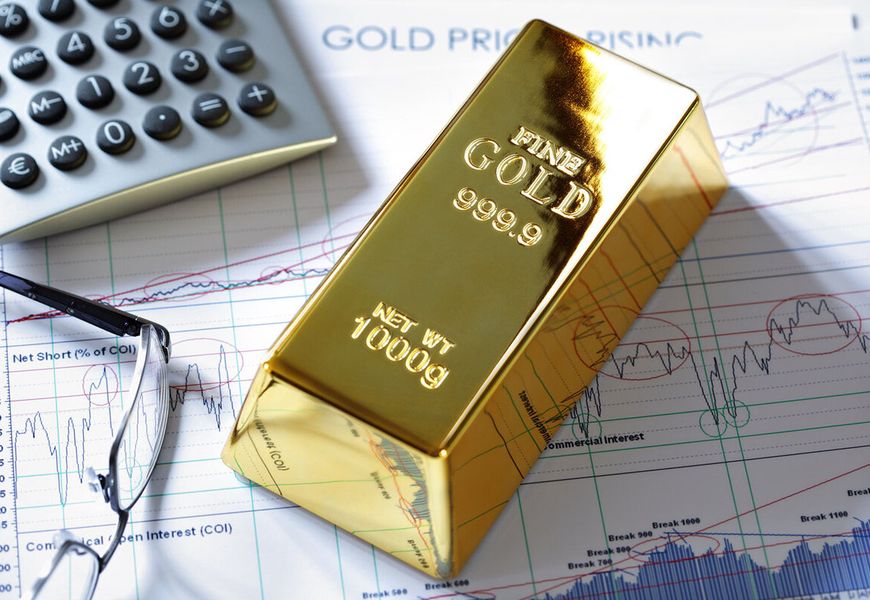
Gold bars can be kept without paying income tax if they have been in the possession of the owner for more than 3 years. But you must keep all receipts and other documents about the valuable items you purchased. An investment account gives you the opportunity to increase your savings. It is a good way to earn an additional 13% from the price of precious metal.
Closer to the middle of 2019, the President of the Russian Federation signed Decree No. 212 on the abolition of payment of VAT on the withdrawal of precious metal (purchased for the purpose of investment or any other), the receipt of physical gold.
Types of tax benefits
The following simplified taxation schemes are now in effect:
- No withholding tax on income when investing up to 3 million rubles if the securities were purchased on the Moscow Exchange;
- for owners of shares of high-tech companies for more than 1 year (if purchased on the Moscow Exchange): no tax is withheld for the period indicated;
- IIR: when you open an account, the tax office returns 13% of the contribution (but not more than 52 thousand rubles for 1 year);
- coupon holders' income on the purchase of bonds is not taxable;
- the previous year's loss is taken into account when paying the current year's tax, which gives you the opportunity to get a discount;
Keeping money in gold can be profitable not only if you choose a worthy investment target (project). If you pay the full tax rate, the income will be significantly reduced. For this reason, it is necessary to consider the option of receiving a benefit, with this in mind, one chooses the investment instrument that will allow to keep securities and metals cheaply.
Table: Analysis of returns on different gold investments
To decide which object of investment is more suitable, you should analyze the advantages and disadvantages of each option:
| Type of investment | Pros | Minuses | Target audience |
|---|---|---|---|
| Decorations | You can buy rare, vintage products | Low yield | Collectors |
| Coins | High value among collectors | High spread | Numismatists |
| Bullion | No markup | Significant associated costs | Secured investors |
| GMC | Average yield | Losses on sale | Bank customers who trust financial institutions |
| Quotes | Fast earnings on changes in the rate, | Risk of loss of funds | Brokers |
Question and answer section:
Can an individual trade on a stock exchange?
How does an ordinary person buy shares in a gold mining company? How much should I buy to get a tangible income?

How effective are investments in gold jewelry?
How to invest in gold to make money?
Is it profitable to invest in gold now and today?
Is it profitable to keep money in gold?
How do you convert gold into money?
Video: how to invest in gold, pros and cons
Broker's commentary

Financial Analyst's Opinion

